How did Big Tech get so powerful?
If they're that evil, how did we let them get away with it?
Four words: FREE, FRAMING, LOBBYING & BULLYINGFree toys
We all drank the cool aid. We took the shiny - and quite frankly amazing - free toys they offered us. Search, browsers, operating systems, cheaper-than-they-should-be mobile phones, social media networks, messaging apps, video calls, email, maps.... Free, free, free, free! Like magic!!
We didn't stop to think of what the real price was. Not even when the expression "data is the new oil" became well known. Perhaps you thought that means that companies everywhere will start to get into data analytics to better understand their customers? It mostly referred to Google and Facebook mining the s%*^ out of our personal data.
Our behavioural data became the raw material for their product: access to predicting and influencing our behaviour. And for this product, businesses (via advertisers) were willing to pay a LOT of money. And with the product's raw material coming from us citizens for free, the margins on the product are enormous.
Framing
To succeed in growing their advertising revenues the most important thing for Google and Facebook was to keep the true nature of their data harvesting operations secret. They achived this by clever framing and lobbying
Framing means posing their mission and operations in such a way that the public thinks a certain way about it, and do not focus on the truth.
The most famous framing trick was Eric Schmidt's quote "If you've got something to hide, maybe you shouldn't be doing it in the first place". Another is "Regulation stifles innovation".
Lobbying
So they fooled us, but what about governments, regulators, law makers?
Initially they stood down willingly. They were actually about to pass fairly strong privacy laws but in the aftermath of 9/11 these were abandoned. Our privacy was given up in the name of security. Never let a good crisis go to waste, they say, and the security services were very keen to get these young tech companies to harvest as much data about the population as possible.
As the years went by, however, the harms of social media became clear, privacy scandals about big tech were regularly reported (e.g. Cambridge Analytica, 2017), and whistleblowers showed us what the security services were up to (e.g. Edward Snowden, 2014). In order to survive these events Big Tech has to spend eye-watering amounts on lobbying governments and law-makers:
https://corporateeurope.org/en/2021/08/big-tech-takes-eu-lobby-spending-all-time-high
So our governments have been well paid for their silence.
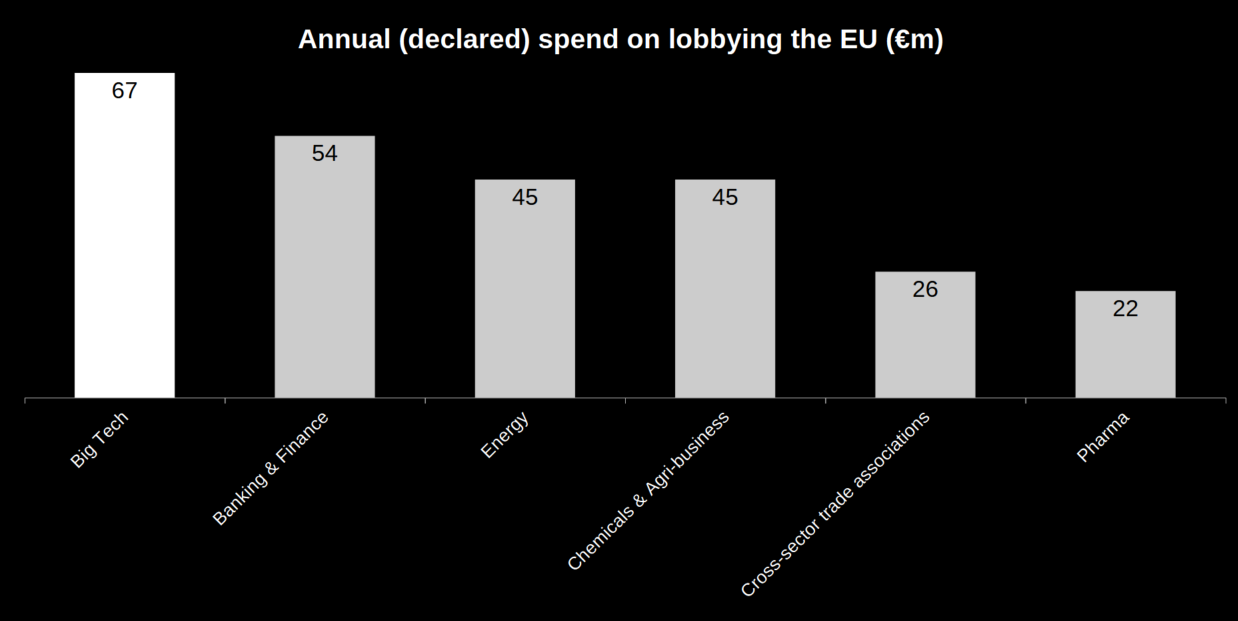
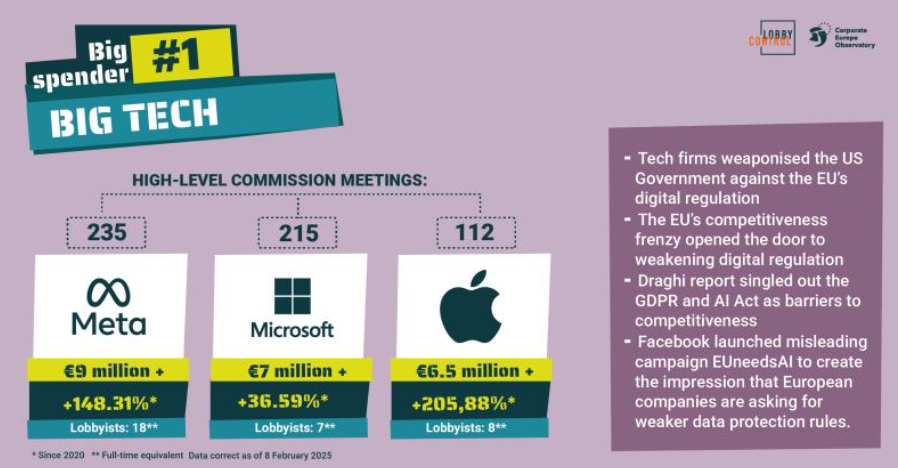
Bullying
Big Tech have bullied their way to monopoly positions. If there was a competitor threatening they just bought them, or crushed them out of the market. Search Wikipedia for the list of acquisitions by Google for example - it's massive. After gobbling up all the innovative companies we are left with this concentration of power:
Big Tech - who owns what?
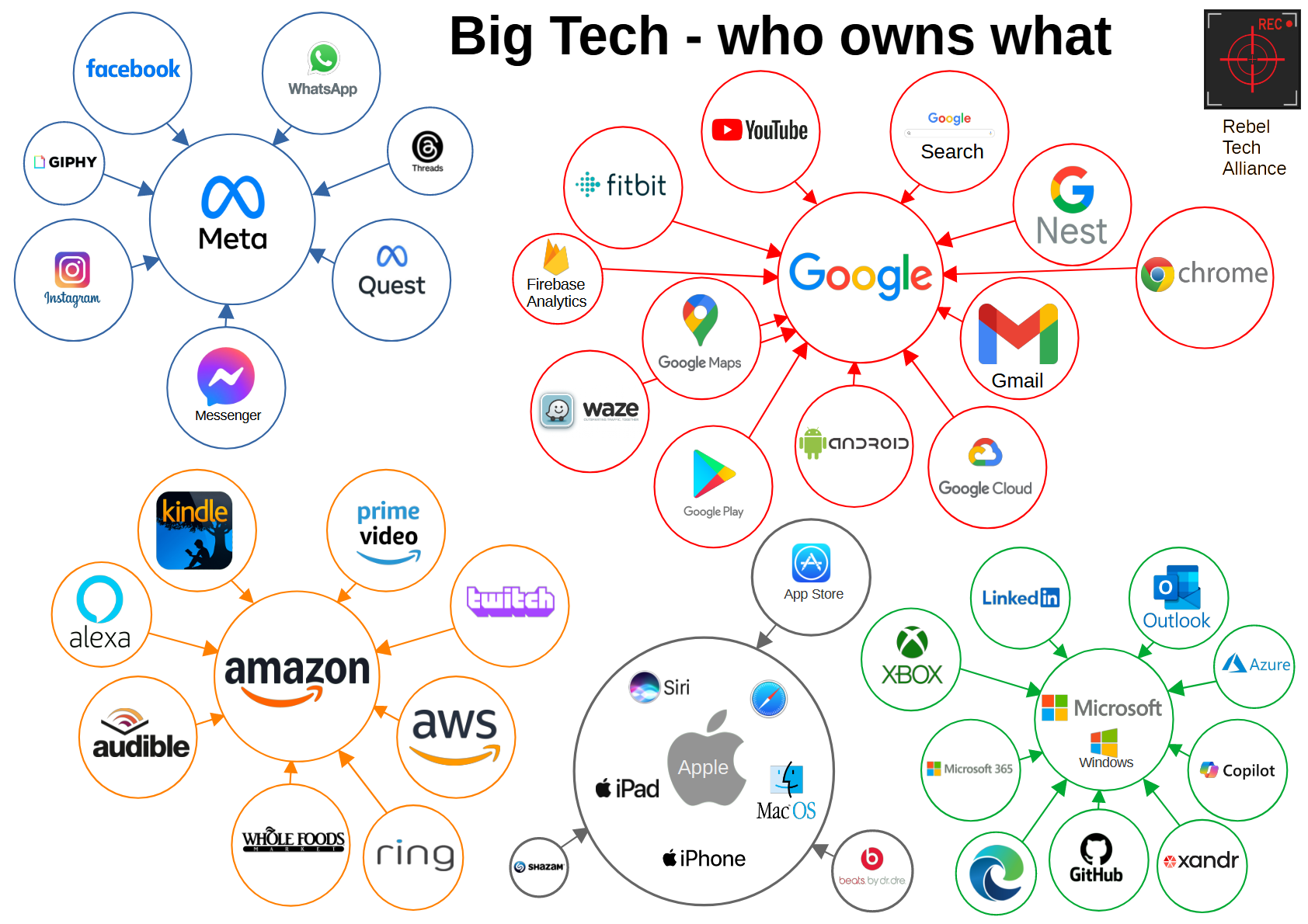
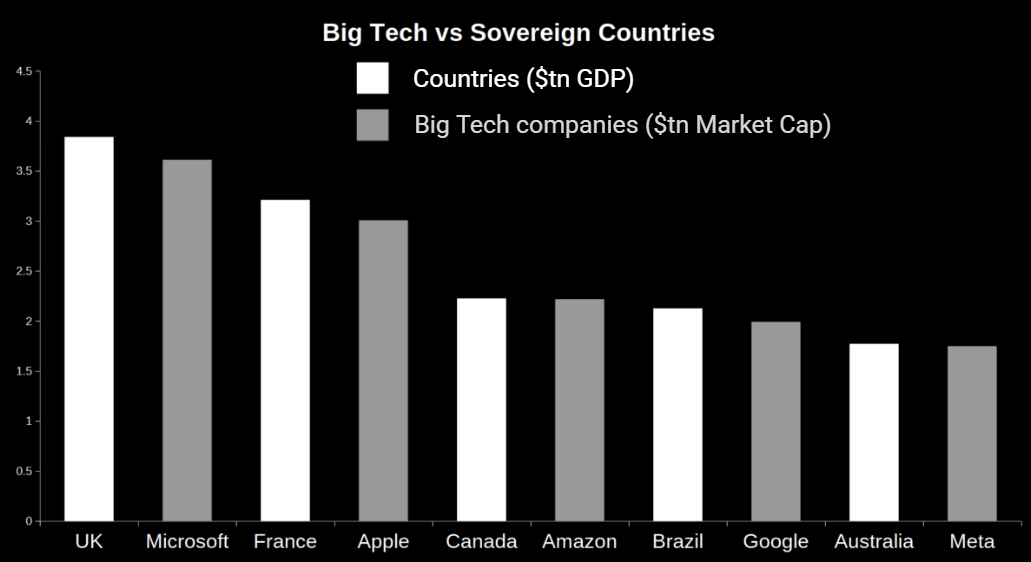
When private companies have a market cap (net worth) bigger than many sovereign nations, you know that we've allowed them to become too powerful.
Why didn't the GDPR stop them?
The GDPR is comprehensive but it was never well applied, and it was poorly enforced.Cookie popups and Privacy Policies
Placing the choice with the consumer using cookie banner popups was a terrible idea. It is a faustian choice. And putting a 'Do you agree to our privacy policy' choice before accessing each Big Tech services was a terrible idea too. A study estimated it would take you 76 days per year if you read every privacy policy properly:
So despite the GDPR being correctly focused on consent, it was never well applied. In most cases the consent is meaningless, and is merely a 'take it (data harvesting) or leave it choice'.
Ireland sold out
Pretty much all the Big Tech companies flocked to Ireland to set up their EU headquarters: Google, Meta, Apple, Microsoft. Why? They were offered low corporation tax rates by the Irish government. At the time the Irish economy was recovering after the crash following the Celtic Tiger, so it was understandable.
What is unforgivable is that since then the Irish DPC (Data Protection Commission) has sat on their hands for nearly every GDPR complaint that has been presented to it. In fact the EU Court of Justice had to sue the Irish DPC in order to force it to process the complaints against Big Tech firms (mainly Meta and Google):
https://www.rte.ie/news/europe/2025/0129/1493565-european-court/
Big fines, small payments
Since 2021 Meta has been fined a whopping €2.6bn in GDPR violation fines:
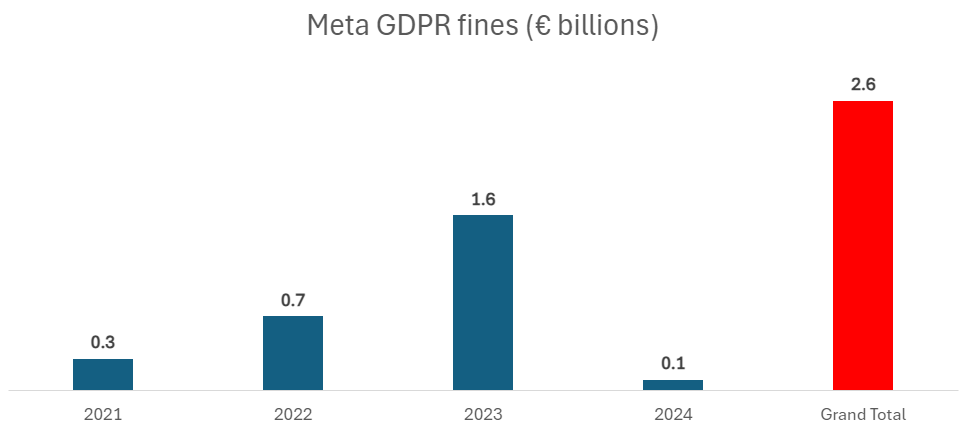
It's good news that they received the fines, but weakness at the Irish DPC has meant that very little money has actually changed hands.
Proton has done a great job of keeping track of the massive fines that Big Tech has received, but as you can see, they are a drop in the surveillance profits ocean:
https://proton.me/tech-fines-tracker
Walled Gardens and the Network Effect
Walled Gardens - enshittification, stage 2
Stage 2 of enshittification of platforms is when individual users are locked in, and the platform starts to treat them badly, in favour of business users. (Stage 3 is when they do the same thing to business users in favour of shareholders).
When platforms have you locked in, inside their walled garden, they don't fear competition and they can start to degrade your experience with no consequenses to them.
This quote from Cory Doctorow illustrates the point: "Airport, stadiums and tech platforms are all walled gardens – roach motels that are hard to escape once they've been entered. Thus the scorching prices of stadium and airport food, and the 30% transaction fees imposed by Apple and Google on app revenues (this is 1,000% higher than the average fees charged by the rest of the payment processing industry!), the 51% fees extracted by Google/Meta from advertisers and publishers (compare with the historical average of 15%), and the 45-51% that Amazon takes out of every dollar earned by its platform sellers. Once you're locked in, they can turn the screws, either by gouging buyers directly, or by gouging sellers, who pass those additional costs onto buyers."
The Network Effect
"I can't leave that service, because all my contacts are there". This 'network effect' is a byproduct of the walled garden, and makes it easier for these platforms to enshittify. The answer is to run more ethical alternatives in parallel for a while, and fully switch when a critical mass of your friends do.
Enshittification
Big tech hooked us in with the free shiny toys. Their products are generally reliable but they are addictive by design.
Over the years as we provided free raw material for their advertising business, the massive profits paid for yet shinier toys, and soon everyone was trapped in walled gardens.
As you've seen in the Learn section of this site, however, the true price we pay for those toys is not worth it. And when companies have 'users' trapped, they are no longer incentivised to provide a user-centric product that works in your interests. Updates to the products begin to serve other masters - first business customers, then shareholders. In other words they follow the process of Enshittification, as coined by Cory Doctorow:
https://pluralistic.net/2024/01/30/go-nuts-meine-kerle/